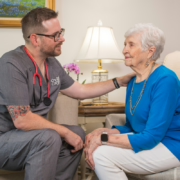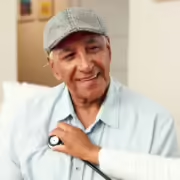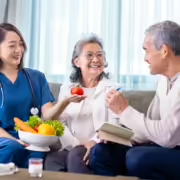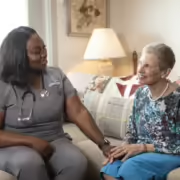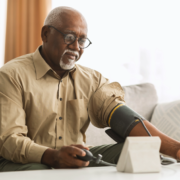Winter Activities for Seniors: Stay Active and Engaged All Season Long
As winter sets in, the colder temperatures and shorter days can lead to increased feelings of isolation and loneliness, especially for seniors. But the winter months don’t have to mean being stuck indoors feeling disconnected. There are plenty of fun, creative ways to stay active—both physically and mentally—while making the most of the season. Here are some winter activities to help seniors stay engaged, maintain their well-being, and boost their mood this winter.
1. Indoor Exercise and Stretching
While it might be tempting to stay cozy inside, maintaining physical activity is essential for overall health. Simple indoor exercises like stretching, chair yoga, or gentle strength training can keep muscles strong and joints flexible. Many online videos and apps offer easy-to-follow routines specifically designed for seniors.
If possible, take a walk around the house or up and down the hallway to stay mobile. A brisk walk indoors can improve circulation, prevent stiffness, and boost your energy—plus, it’s a great way to beat the winter blues.
2. Arts and Crafts for Creative Expression
Winter is the perfect time to explore creative hobbies that can keep the mind engaged and provide a sense of accomplishment. Try painting, knitting, scrapbooking, or even simple coloring books. These activities promote mental stimulation, reduce stress, and give seniors a chance to express themselves. Plus, the joy of finishing a craft project can bring a real sense of satisfaction.
3. Reading and Puzzles
The winter months are a great opportunity to dive into a good book. Whether it’s a captivating novel, an interesting biography, or articles on a favorite hobby, reading keeps the mind sharp and provides a welcome escape. Pair reading with hot tea or cocoa for a cozy experience.
Puzzles are another fantastic way to stay mentally active. Crosswords, jigsaw puzzles, or Sudoku challenge the brain, promote problem-solving skills, and can even improve memory. These quiet activities also provide excellent solo or social time with friends and family.
4. Virtual Socializing
When it’s too cold to go outside, staying socially connected is key. With the rise of technology, virtual platforms make it easier than ever to stay in touch with loved ones, participate in virtual book clubs, or join online hobby groups. Regular video calls or phone chats can help combat loneliness and provide a sense of community. Many senior centers and community organizations also offer virtual events, such as games, cooking classes, and social hours, specifically tailored to seniors.
5. Cooking or Baking Together
There’s something about the winter months that makes baking feel extra special. Whether it’s making cookies, a warm casserole, or a hearty soup, cooking can be a fun and productive way to spend time indoors. It’s also an opportunity to involve family members, caregivers, or friends in the process—creating a shared experience that fosters connection and joy. Cooking together also helps seniors stay nourished and gives them a sense of accomplishment when preparing and enjoying a meal.
6. Nature Walks (When Weather Permits)
If the weather is mild enough, a winter walk in nature can do wonders for both mental and physical health. The crisp air and serene winter landscapes are calming, and the light exercise is beneficial for maintaining mobility and balance. If the sidewalks are clear, consider a short walk in a nearby park or around the block, and be sure to bundle up warmly for safety and comfort.
7. Volunteer or Give Back
Winter is a great time to reflect on the season of giving. Many seniors find joy in volunteering—whether it’s organizing food drives, knitting scarves for the homeless, or helping at local community centers. These activities not only provide a sense of purpose but also help connect seniors with others and reduce feelings of isolation.
8. Mindfulness and Relaxation
Winter can sometimes feel long, but taking time to slow down and enjoy the season can be a great way to nurture mental and emotional well-being. Seniors can practice mindfulness, meditation, or breathing exercises to reduce stress and stay mentally balanced. Listening to calming music or doing a guided relaxation exercise can help promote peace of mind during the colder months.
Winter doesn’t have to be a season of isolation. With a little creativity and some planning, seniors can stay active, engaged, and connected throughout the season. The activities above are just a few ways to keep the mind and body engaged, and they also offer a great opportunity to bond with family and friends. At VitalCaring, we’re committed to helping seniors stay healthy and connected year-round, no matter the season. If you or a loved one needs extra support, we’re here to assist with everything from home health to hospice care.
Let’s make this winter one full of warmth, activity, and connection!


